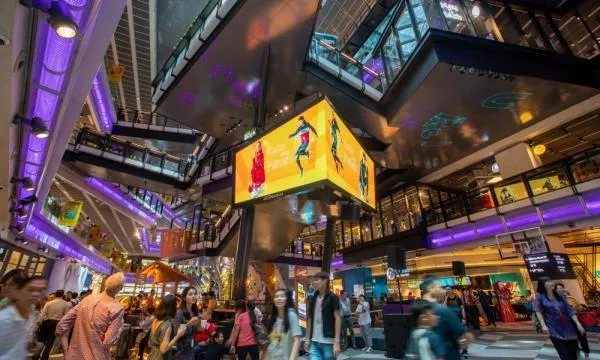
Longer lockdowns loom over Malaysia's retailers in H1 2021
Restrictions on shopping malls and crowded stores will likely be the last to be lifted.
Retail sales in Malaysia are expected to recover over 2021 with all retail sub-sectors to see a rebound, but the sector will face the challenge of a possible strict and longer lockdown over the first half of the year, according to Fitch Solutions.
On 12 January, the prime minister announced a nationwide travel ban and a 14-day lockdown in the capital and five states as the country faces a third wave of COVID-19 infections, with its daily caseload averaging about 2,319 since the beginning of 2021.
This compares to the average of 149 and peak of 217 in the four weeks between mid-March 2020 and mid-April 2020, the last serious episode of the outbreak in the country.
“As such, we believe that it is very likely that lockdown measures will last longer than the initial two weeks – the previous lockdown lasted close to a quarter in Q2 2020, and was implemented after a far milder outbreak than the current third wave,” the report stated.
Restrictions on high-risk environments, like shopping malls and crowded stores, will likely be some of the last restrictions to be lifted, which will have a disproportionate impact on the retail sector in the country, the report stated.
Further, restrictions still remain on inter-district and inter-state travel within the Klang Valley centered in Kuala Lumpur, which accounts for about 60% of retail sales in the country. This is expected to delay recovery.
Although Malaysian households will face continued pressure on their purchasing power over 2021, Fitch expects a pent-up demand over the year, especially as consumer confidence rises with growing vaccinations.
“Once the macroeconomic situation improves and Covid-19 related restrictions are eased, shoppers will return to retail operations, including shopping malls, especially as they have become places to socialise,” the report stated.
Non-essential spending is expected to ramp up over Q3 and Q4 as a large population gets vaccinated, restrictions are gradually lifted, and consumer confidence improves. “However, over the year, we still forecast essentials, such as food and non-alcoholic drinks and health spending, to continue their outperformance,” Fitch added.



















 Advertise
Advertise






